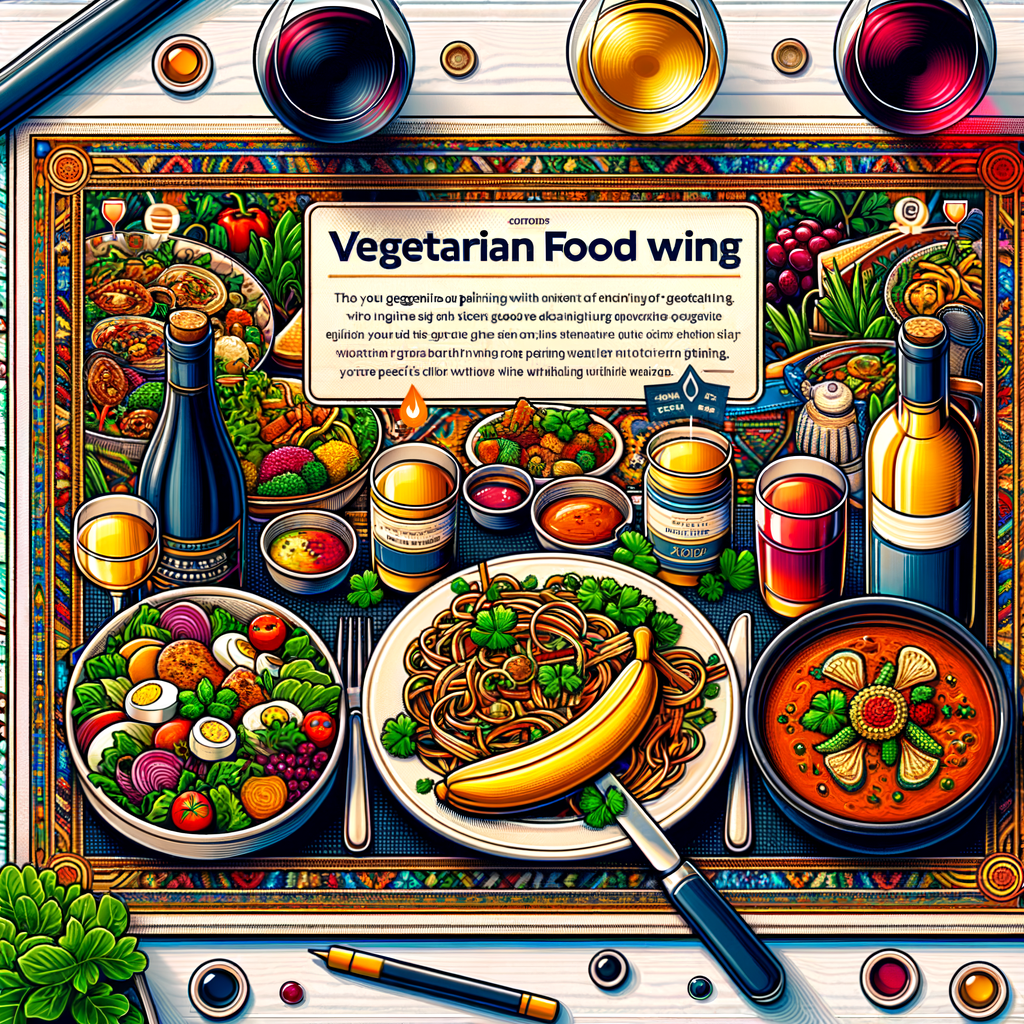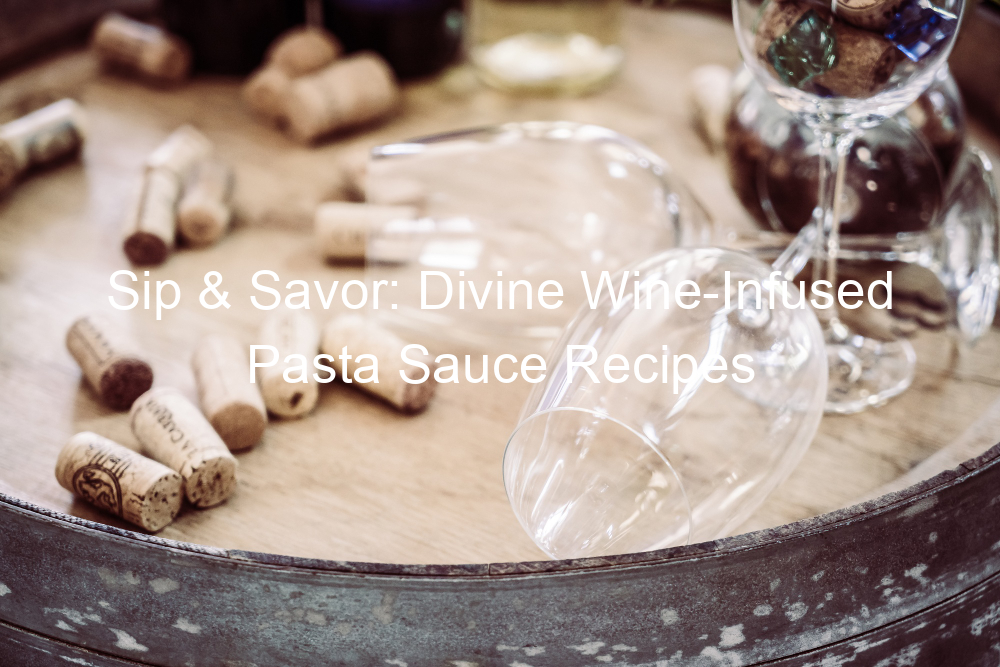
Introduction to Vegetarian Wine Pairing
Welcome to the fascinating world of vegetarian wine pairing! If you’re a vegetarian or just love vegetarian meals, you might be wondering how to choose the right wine to complement your food. Let’s dive into this exciting topic!
- Understanding the concept of vegetarian wine pairing
- Importance of pairing wine with vegetarian meals
Vegetarian wine pairing is all about finding the perfect wine that enhances the flavors of your vegetarian meals. It’s not just about picking any wine, but choosing one that complements the taste, texture, and ingredients of your dish. For example, a light and crisp white wine might go well with a fresh salad, while a full-bodied red could be a great match for a hearty mushroom stew.
Pairing wine with vegetarian meals can elevate your dining experience to a whole new level. The right wine can bring out the best in your food, making each bite more enjoyable. It can also make your meal more memorable, especially if you’re dining with friends or family. Plus, understanding wine pairing can be a fun and rewarding hobby!
By the end of this guide, you’ll have a better understanding of how to pair wines with vegetarian meals. You’ll learn about different types of wines, how they match with various vegetarian dishes, and some handy tips and tricks. So, let’s get started on this delicious journey!
Exploring Vegetarian Wine Options
When it comes to vegetarian meals, finding the perfect wine to complement your dish can be a delightful adventure. Let’s explore some of the best red wines that pair wonderfully with vegetarian dishes.
Red Wines for Vegetarian Dishes
Red wines are known for their bold flavors and rich colors. They can add depth and complexity to many vegetarian dishes. Here are a couple of our top picks:
- Pinot Noir: This wine is a fantastic choice for mushroom-based dishes. The earthy flavors of the mushrooms are beautifully complemented by the light, fruity notes of a Pinot Noir. A good example of a Pinot Noir that pairs well with mushroom dishes is the Burgundy Pinot Noir. Its subtle hints of cherry and raspberry bring out the savory flavors of the mushrooms, creating a harmonious blend of tastes.
- Merlot: If you’re cooking up a hearty vegetable stew, consider pairing it with a Merlot. This wine is known for its smooth, plum-like flavors that can enhance the robustness of a vegetable stew. A Bordeaux Merlot, with its notes of black cherry and chocolate, can add a touch of sweetness that balances the savory elements of the stew.
Remember, the best wine pairing is the one that you enjoy the most. So, feel free to experiment with different wines and dishes until you find your perfect match. Happy cooking and tasting!
White Wines for Vegetarian Meals
When it comes to vegetarian meals, white wines can be a delightful addition. They can enhance the flavors of your dishes and make your meal even more enjoyable. Here are two white wines that are perfect for pairing with vegetarian meals:
- Sauvignon Blanc: This is a versatile white wine that is known for its crisp, dry, and refreshing qualities. It is an ideal match for green vegetables. The high acidity of Sauvignon Blanc can cut through the richness of green vegetables, making it a perfect balance. For example, a dish like steamed asparagus or a green salad would pair beautifully with a glass of Sauvignon Blanc. To learn more about Sauvignon Blanc, you can visit its Wikipedia page.
- Chardonnay: If you’re serving a creamy vegetarian dish, Chardonnay is your go-to wine. It has a full-bodied and rich flavor that can stand up to the creaminess of dishes like pasta Alfredo or a rich risotto. The buttery notes of Chardonnay complement the creaminess of these dishes, making it a perfect match. You can learn more about Chardonnay on its Wikipedia page.
Remember, the key to a successful wine pairing is balance. You want the wine to complement the food, not overpower it. So, next time you’re planning a vegetarian meal, consider adding a bottle of Sauvignon Blanc or Chardonnay to the menu!
Wine and Vegetarian Food Matching: Case Studies
Let’s dive into some real-life examples of how to pair wine with vegetarian dishes. These case studies will help you understand the process and give you some ideas for your own vegetarian meals.
-
Case Study 1: Pairing wine with a vegetarian Italian feast
Italian cuisine is known for its rich flavors and diverse range of dishes. For our vegetarian Italian feast, we prepared a menu of pasta primavera, eggplant parmesan, and a fresh caprese salad.
For the pasta primavera, a dish filled with fresh vegetables and light sauce, we chose a crisp, white Vermentino. This wine’s bright acidity and citrus notes complemented the dish’s fresh flavors perfectly.
Next, we paired the robust eggplant parmesan with a medium-bodied Chianti. The wine’s fruity notes and soft tannins balanced the rich, cheesy dish.
Finally, for the caprese salad, a light and refreshing Prosecco was our choice. The wine’s bubbles and light sweetness were a perfect match for the fresh mozzarella and ripe tomatoes.
-
Case Study 2: Wine selection for a vegetarian Thai dinner
Thai cuisine is known for its bold flavors and spicy dishes. For our vegetarian Thai dinner, we prepared a menu of green curry with tofu, pad Thai, and mango sticky rice.
For the spicy green curry with tofu, we selected a fruity, off-dry Riesling. The wine’s sweetness helped balance the dish’s heat, while its acidity cut through the rich coconut milk.
Next, for the pad Thai, a dish with complex flavors and a hint of sweetness, we chose a vibrant Gewürztraminer. This wine’s floral notes and slight sweetness complemented the dish’s flavors perfectly.
Finally, for the sweet mango sticky rice, we selected a dessert wine, specifically a Moscato d’Asti. The wine’s light bubbles and sweet, fruity flavors were a perfect match for the dessert.
These case studies illustrate how different wines can complement a variety of vegetarian dishes. Remember, the key to successful wine pairing is balance. The wine should complement the food’s flavors, not overpower them.
Pairing Wine with Vegetarian Cuisine: Key Takeaways
When it comes to pairing wine with vegetarian cuisine, there are a few key points to keep in mind. It’s not just about picking any wine and hoping it works. It’s about understanding the flavors, matching them with the dish, and considering the cooking method and spices used.
- Understanding the flavor profiles of different wines
- Matching the wine’s flavor with the dominant flavors of the dish
- Considering the cooking method and spices used in the vegetarian dish
Every wine has its own unique flavor profile, which can range from sweet and fruity to dry and spicy. For example, a Cabernet Sauvignon is known for its full-bodied flavor with hints of black cherry and blackberry. On the other hand, a Sauvignon Blanc is light, crisp, and often has notes of green apple and lime. Understanding these flavor profiles can help you choose a wine that will complement your vegetarian dish, rather than overpower it. Check out this list of grape varieties on Wikipedia for more information.
Once you understand the flavor profiles of different wines, the next step is to match the wine’s flavor with the dominant flavors of the dish. For instance, if you’re serving a spicy vegetarian curry, a sweet Riesling can help balance out the heat. Or if you’re serving a dish with earthy flavors like mushrooms or lentils, a Pinot Noir with its earthy and fruity notes can be a great match.
The cooking method and spices used in the dish can also influence the wine pairing. For example, grilled vegetables with a smoky flavor can pair well with a smoky, oaky Chardonnay. And dishes with a lot of herbs can pair well with herbaceous wines like Sauvignon Blanc. Remember, the goal is to create a balance of flavors where the wine and the dish complement each other.
In conclusion, pairing wine with vegetarian cuisine is an art that requires a bit of knowledge and experimentation. But with these key takeaways, you’re well on your way to creating delightful vegetarian meals with the perfect wine pairings. Cheers!
Vegetarian Meal Wine Guide: Tips and Tricks
When it comes to pairing wine with vegetarian meals, there are a few tips and tricks that can help you make the most of your dining experience. Here are a couple of them:
- Tip 1: Don’t be afraid to experiment with unusual pairings
- Tip 2: Consider the weight and texture of the wine and the dish
Pairing wine with vegetarian food can be a fun and exciting adventure. Don’t be afraid to try out unusual combinations. For instance, a robust red wine might work well with a hearty mushroom stew, while a crisp white might be just the thing for a light salad. Remember, the best pairing is the one that you enjoy the most. So, go ahead and experiment!
When choosing a wine to go with your vegetarian meal, consider the weight and texture of both the wine and the dish. A heavy, creamy dish might need a full-bodied wine to balance it out, while a light, crisp dish might pair better with a light, refreshing wine. Think about how the flavors and textures will interact, and choose a wine that will complement your meal, not overpower it.
Remember, the most important thing is to enjoy your meal and your wine. Don’t stress too much about getting the perfect pairing. Instead, focus on finding a combination that makes your taste buds happy. Cheers!
Conclusion: Embrace the Art of Vegetarian Wine Pairing
As we reach the end of our journey exploring the art of vegetarian wine pairing, it’s clear that there’s a whole world of flavors waiting to be discovered. Let’s take a moment to recap and reflect on what we’ve learned.
- Recap of the importance of wine pairing for vegetarian meals
- Final thoughts on exploring vegetarian wine options
Wine pairing is not just for meat-based dishes. Vegetarian meals can be just as complex and flavorful, and the right wine can enhance these flavors, creating a dining experience that’s truly memorable. From the tangy zest of a Sauvignon Blanc with a fresh salad, to the rich, earthy notes of a Pinot Noir with a hearty mushroom risotto, there’s a perfect wine for every vegetarian dish.
Exploring vegetarian wine options is an adventure in itself. It’s about stepping out of your comfort zone, trying new things, and discovering new favorites. Remember, there’s no right or wrong when it comes to wine pairing. It’s all about personal preference and finding what works best for you. So, don’t be afraid to experiment and have fun with it!
As the famous wine connoisseur, Robert Louis Stevenson once said, “Wine is bottled poetry.” So, let your vegetarian meals be the canvas for this poetry. Embrace the art of vegetarian wine pairing and elevate your dining experiences to new heights. Cheers to your wine pairing adventures!






